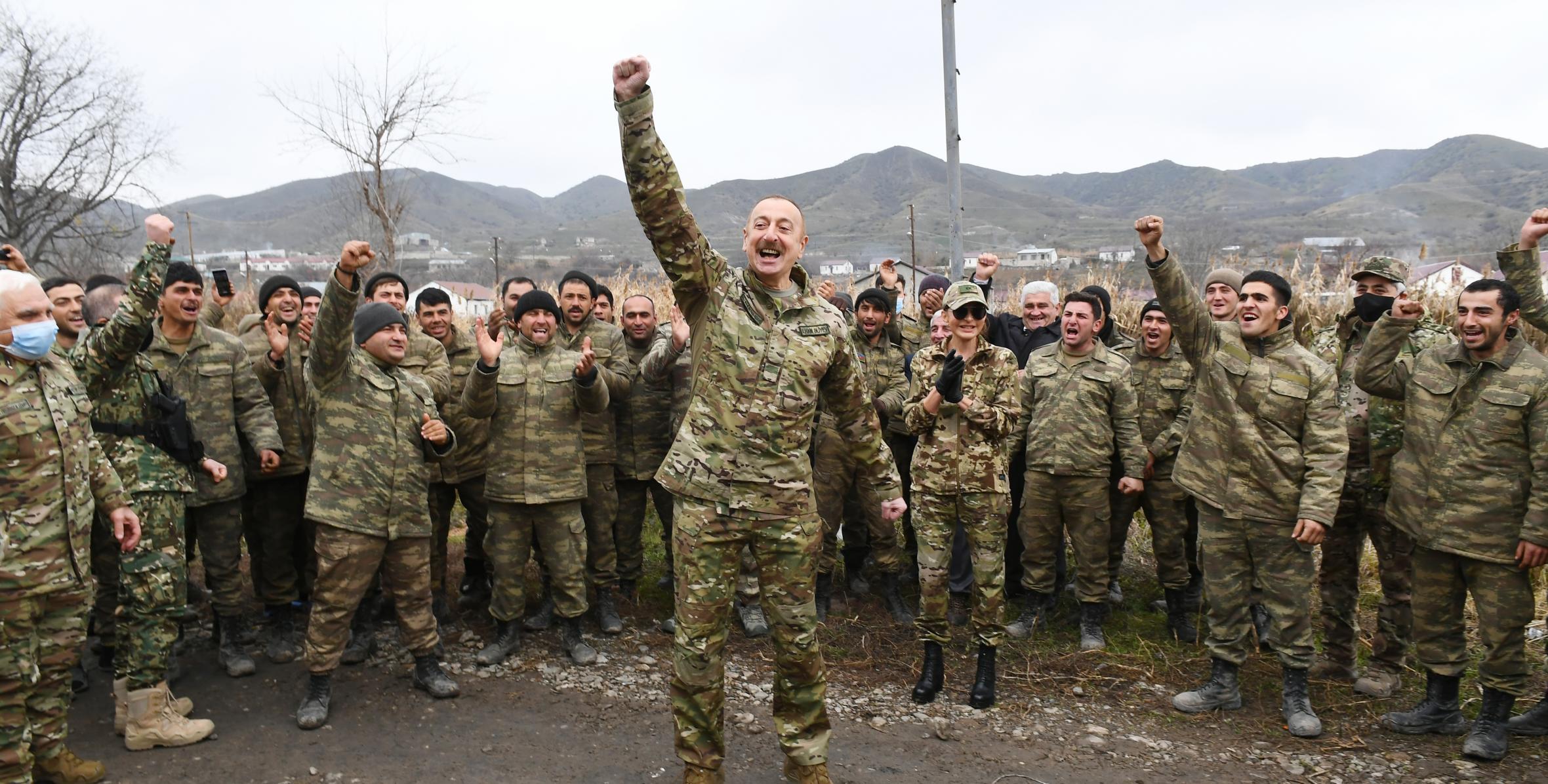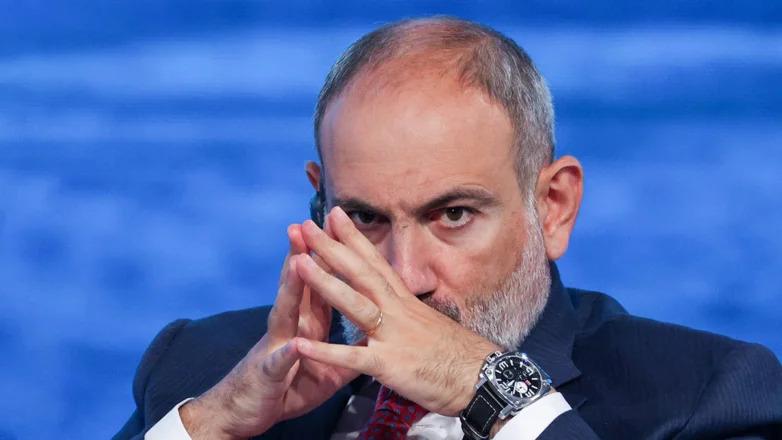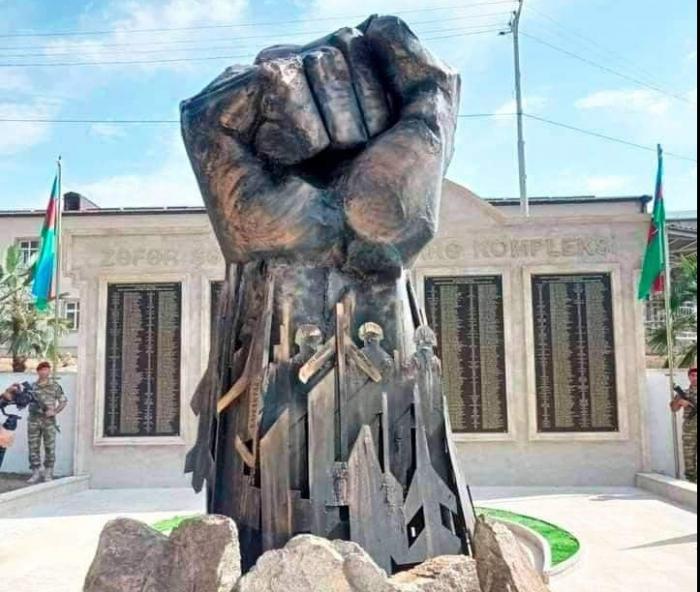"Historical" Armenia vs. present-day Armenia
Unveiling the conundrum
ANALYTICS 15 April 2024 - 09:11
| Fuad Muxtar-Agbabali |
Armenian Prime Minister Nikol Pashinyan, during a parliamentary session on April 10, delved into a complex discourse, unveiling what he termed as the existential duality between 'historical' Armenia and 'real Armenia'.
In an analysis of the government's 5-year program (2021-2026) for the year 2023, Nikol Pashinyan made a profound assertion: 'historical' Armenia and present-day Armenia are not merely divergent, but often antagonistic, posing profound threats to each other's existence.
In what appears to be a departure from entrenched perceptions, the prime minister highlighted a critical realization that had seemingly eluded both himself and the government until 2022. He emphasized the startling neglect of internationally-recognized borders and territories, foundational to Armenia's security paradigm. This eye opener marked a watershed moment, leading to a seismic shift in Armenia's political consciousness.
While seemingly mundane to the public eye, the parliamentary debates since 2021 have been instilled in profound significance, resonating with strategic depth. Pashinyan elucidated on the clash of perspectives inherent within these debates, delineating them along the fault lines of 'historical' Armenia versus present-day Armenia. This schism, according to Pashinyan, crystallized in the aftermath of the 2020 war, shattering the erstwhile consensus that historical and real Armenia could symbiotically reinforce each other.

The game changing moment came with the September 2022 cross-border clashes with Azerbaijan, which, he said, served as an ominous harbinger of the perils besetting present-day Armenia.
Nikol Pashinyan's revelation was unequivocal: the fixation upon Armenia's internationally-recognized territory emerged as the linchpin for ensuring the nation's security. Subsequently, commenced a profound political-psychological metamorphosis, delineated by Pashinyan as the 'process of delimitation' between present-day Armenia and its 'historical' twin.
This process, as Pashinyan noted, mirrors the arduous task of demarcating the physical borders between Armenia and Azerbaijan. It represents giant effort, wherein the very essence of Armenian identity and security is at stake. His somber conclusion reverberates with ominous gravity: 'historical' Armenia, in its obstinate refusal to acknowledge the territorial integrity of present-day Armenia, unwittingly aligns itself with external forces coveting Armenia's sovereignty and territories.
The profound ramifications of the prime minister’s analysis extend far beyond the confines of Armenia's borders. It underscores the perennial struggle faced by nations grappling with the paradox of historical legacy versus contemporary crises. Moreover, it accentuates the delicate balance between national identity and geopolitical realities, wherein the past inexorably intersects with the present, shaping the trajectory of a nation's destiny.
Prime Minister Nikol Pashinyan's address to parliament highlights a fundamental shift in Armenia's approach to its borders. He emphasizes that the internationally-recognized borders of Armenia are crucial for the country's short-term, medium-term, and long-term security. This marks a departure from previous rhetoric that often romanticized the notion of 'historical' Armenia, which Pashinyan now views as incompatible with the realities of the modern state.
Pashinyan's acknowledgment of the importance of internationally-recognized borders reflects a pragmatic understanding of Armenia's security needs. By recognizing the necessity of delineating between real Armenia and the idealized concept of 'historical' Armenia, Pashinyan is signaling a departure from past narratives that may have hindered diplomatic efforts and exacerbated regional tensions.

However, Pashinyan's stance has faced criticism from his rivals, who accuse him of attempting to deflect attention from his government’s failures by engaging in what they perceive as futile and divisive discussions about 'historical' and real Armenia. They particularly condemn Pashinyan for what they perceive as concessions made to Azerbaijan, such as the alleged ceding of four border villages in Tavush region at this stage.
The opposition's assertion that Pashinyan's fixation on the 'historical' Armenia-real Armenia dilemma is an obsession underscores the deeply entrenched nature of the issue within Armenian society. For many Armenians, 'historical' Armenia represents not just a geographical territory but also a core aspect of national identity. The opposition's portrayal of 'historical' Armenia as an indisputable issue highlights the challenges Pashinyan faces in reconciling historical narratives with geopolitical realities.
Pashinyan's defense against these accusations rests on the premise that recognizing the territorial integrity of Azerbaijan is essential for safeguarding Armenia's own territorial integrity. He argues that Armenia's territorial integrity is intricately linked with that of its neighboring countries, including Azerbaijan, Türkiye, Iran, and Georgia. By acknowledging the territorial integrity of these nations, Armenia affirms its own existence as a sovereign state.
However, Pashinyan's acknowledgment of Azerbaijan's territorial integrity also underscores the influence of recent geopolitical developments, particularly the outcome of the 44-day war between Armenia and Azerbaijan in 2020. The defeat suffered by Armenia in that war, including the de-occupation of Karabakh, forced a reassessment of Armenia's strategic priorities and diplomatic posture. The Armenian prime minister's acceptance of the Prague agreements, which recognize the territorial integrity of both Armenia and Azerbaijan, reflected this recalibration of Yerevan's foreign policy objectives.
Moreover, Pashinyan's analogy likening Azerbaijan to a therapist treating Armenian society's "bipolar affective disorder" encapsulates the complex dynamics at play in the region. It acknowledges Azerbaijan's role as a regional power that has exerted significant pressure on Armenia, both militarily and diplomatically. The reference to ‘bipolar affective disorder’ highlights the psychological toll of decades-long conflict and underscores the need for a nuanced understanding of the underlying tensions between the two nations.

In essence, Pashinyan's discourse serves as a call to action for introspection, urging policymakers and citizens alike to navigate the labyrinthine complexities of Armenia's past and present with sagacity and foresight. Only through a nuanced understanding of this existential conundrum can Armenia chart a course towards a future.
Ultimately, the prime minister's address to parliament represents a pivotal moment in Armenia's approach to its borders and regional security. By prioritizing the internationally recognized borders of Armenia over idealized notions of historical territory, Pashinyan is seeking to chart a more pragmatic and sustainable path forward for his country. However, the challenges posed by entrenched historical narratives and regional rivalries remain significant obstacles to overcome.
Caliber.Az
|
1
|
Phantom arms deal: How false claims aim to derail Baku-Tehran diplomacy Azerbaijan embraces "forewarned is forearmed" principle
25 July 2024 - 15:34
|
|
2
|
Could France’s anti-NATO rhetoric trigger domestic turmoil? Leftist Mélenchon's stance sparks historical echoes
24 July 2024 - 10:24
|
|
3
|
Azerbaijan: The new powerhouse of aluminium production amid global market strain "Green" era's requirement
25 July 2024 - 17:05
|
|
4
|
Brussels' bait and Yerevan's rush to swallow it The visa-free temptation
24 July 2024 - 09:00
|
|
5
|
West-backed Armenia likely to spark conflict with Azerbaijan rather than seek peace Caliber.Az reveals expert prognoses
25 July 2024 - 11:10
|
Japan addressing increasing incidents of customer harassment
Service culture under strain27 July 2024 - 03:05
Swiss spots struggle with social media-driven visitor impact
Tourism vs. nature27 July 2024 - 01:03
German chancellor tackles EU expansion, internal reform challenges
Path forward26 July 2024 - 23:03
Italian newspaper explores Azerbaijan's ancient Albanian churches
26 July 2024 - 21:08
Azerbaijani prosecutor general declares ties with Türkiye as strategic partnership
PHOTO26 July 2024 - 20:55
Azerbaijan, Italy strengthening military relations
PHOTO26 July 2024 - 20:42
China demands withdrawal of US nuclear weapons from Europe
26 July 2024 - 20:29
Pentagon concedes to spreading anti-Sinovac propaganda in Philippines
26 July 2024 - 20:16
COP29 presidency team hosts events to tackle key climate agenda issues
26 July 2024 - 20:03
Israel targets Türkiye’s TRT Haber team covering Al-Aqsa mosque incident
26 July 2024 - 19:51
COP20 president: Azerbaijan should lead with ambition at COP29
26 July 2024 - 19:38
Turkish defence minister, Azerbaijani ambassador discuss strengthening military ties
26 July 2024 - 19:25
FBI seeking to interview Trump as part of assassination attempt investigation
26 July 2024 - 19:12
US presidential candidate cites potential path to victory with Biden out of race
26 July 2024 - 18:58
Turkish MP confirms plans for official Azerbaijani school in Istanbul
26 July 2024 - 18:44
US vice president’s call for peace in Gaza sparks controversy with Israel
26 July 2024 - 18:30
FM: Italy to appoint ambassador to Syria after 10 years
26 July 2024 - 18:17
Head of Georgian Parliament blames opposition for compromising national safety
Aid to Ukraine at Georgia’s expense26 July 2024 - 18:03
South Caucasus on edge: West fuels Armenia's war drums
Yerevan clings to deceitful rhetoric26 July 2024 - 18:02
Media: Iran arms Hezbollah with advanced weapons
26 July 2024 - 17:49
Bolsonaro intends to run for Brazilian presidency in 2026, citing confidence in winning
26 July 2024 - 17:36
Armenian PM visits modernised Margara checkpoint on Turkish border
VIDEO26 July 2024 - 17:22
Boeing considers to convert its top fighter into an electronic warfare jet
Caliber.Az on YouTube26 July 2024 - 17:17
Belarus ready to expand cooperation with North Korea
26 July 2024 - 17:09
EU appoints new special representative for South Caucasus
26 July 2024 - 17:01
Azerbaijani-Chinese partnership defies "first among equals" attitudes
Rising above geopolitical cynicism26 July 2024 - 16:55
Armenia's militarization: A "peace agenda" with an armed approach
Yerevan must revisit recent historical lessons26 July 2024 - 16:42
Azerbaijan approves cooperation pacts with Türkiye, Kazakhstan
26 July 2024 - 16:33
Media: US informs Iran of readiness to return to nuclear deal
26 July 2024 - 16:29
Turkish forces take down PKK terrorists in coordinated Iraq and Syria raids
VIDEO26 July 2024 - 16:16
Israeli air strikes hit Hezbollah outposts in response to rocket fire
26 July 2024 - 16:03
Kremlin spox: EU ridicules Orban over Moscow visit
26 July 2024 - 15:51
Armenian parliamentary delegation visits Georgia to strengthen bilateral ties
26 July 2024 - 15:38
Washington talks peace while arming Yerevan
26 July 2024 - 15:38
Travellers from 13 nations explore rebuilding of Karabakh, East Zangazur
PHOTO26 July 2024 - 15:25
European Commission transfers €1.5 billion from frozen Russian assets to aid Ukraine's defence
26 July 2024 - 15:25
Trump says US to destroy Iran in case of his assassination
26 July 2024 - 15:12
Kremlin declares dialogue with West futile amid hostility toward Russia
26 July 2024 - 14:59
Somalia, Azerbaijan share common positions on many international forums
Minister’s statement26 July 2024 - 14:46
Azerbaijan promoting tourism potential in India
PHOTO26 July 2024 - 14:33
